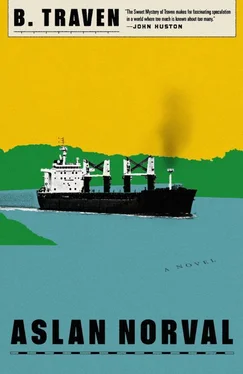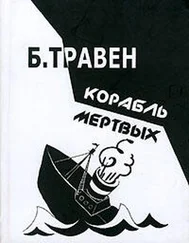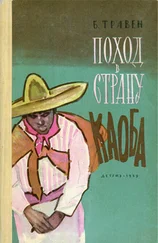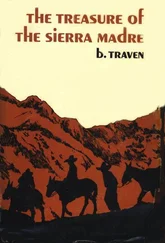“And that would be?”
“As happens so often—indeed, almost always in our country—several groups have formed. There are four groups so far. Each of these groups is zealously trying to gain supporters. First, you have group number one. They say that the Panama Canal is good enough for us, and that both of your projects are impracticable pipe dreams. Finally, they say that there is no way to raise the necessary funds for either project, since taxes for our citizens are high enough already. Then, you have group number two. Their opinion is that if it were possible and we were to build such a ship-transportation railway, it should connect New York with San Francisco directly, straight across the northern part of the country, which would avoid the detour through Florida and Texas.
“Group three has decided in favor of the railway between Galveston and Los Angeles. They argue that its construction would cost less money and time than a canal, and that you could transport ships more rapidly on trains than through the canal. This group rejects a canal saying it is behind the times.
“And then, there is group four. This group claims that it is humanly impossible to build such a railway. And even if you were to build it, there would be no guarantee that it could actually transport large ships of eighty thousand tons or more. This group has definitely decided in favor of the canal.”
“I never thought about the possibility that groups with strong political influence could form. At least, I never considered it in connection with the construction of a canal,” Aslan said, looking out over the ocean.
She added: “I predict that the existence of these groups could indeed postpone the beginning of either project. It makes me think that we should immediately contact twenty engineers, who should compare both projects, the canal and the railway, in terms of feasibility, time of construction, and cost. The company will then consider their decision. Mr. Beckford, I personally don’t have the necessary technical experience or knowledge to determine authoritatively what is better: the canal project or the railway project. A simple comparison of both projects, based entirely on logical thinking, would give the railway project the advantage in my opinion.”
She finished her cocktail and looked at her watch.
“Would you like to dine with me, Mr. Beckford?” she asked in a different tone of voice. “I would still like to hear from you what the papers are predicting in terms of the committee’s decision. Some reporters have a good nose for such things.”
She stood up and so did Beckford.
“At seven thirty in the dining room,” she said as she turned away to leave the terrace. “I have reserved a table as far away from the music as possible since it gets on my nerves. Seven thirty, Mr. Beckford.”
“I will do my best to be on time, ma’am,” Beckford answered. He was glad to be free of Aslan for a few hours. Talking to her, even sitting at the same table with her, having to focus all his attention on her, was mentally exhausting for him.
He wandered along the beach and studied the figures of the young women lying around. For Beckford, these kinds of studies were less arduous than having to converse with Aslan.
Dinner was luxurious but boring. In Aslan’s opinion, none of the courses that appeared on the table were interesting at all. She didn’t say so, but the way she sniffed and picked at the food made her opinion abundantly clear, even to the disappointed waiters. The music was slow and just as boring as the meal.
Beckford, on the other hand, devoured everything that was served. Doing so helped him keep his conversation to a minimum, because in fact, he did not know what to talk about with Aslan, unless it was about the newspapers again, which he would rather not do at that moment.
Finally, Aslan could not stand it anymore. She demanded to see the head chef. The chef came. “Yes, ma’am? What can I do for you?”
“Couldn’t you make me just a regular old hearty bean soup à la navy?”
“Bean soup, ma’am?” The chef’s face lit up as if a sunbeam was shining on it directly. “But that is exactly what I cooked for us, for the staff today.” He pursed his lips, smacked them, and snapped his fingers, his hand held high in the air. “You shall have your little soup, ma’am, and you’ll dream about it till Christmas.”
He stormed out of the dining room so quickly that the guests feared he might knock over some tables. The bean soup came with bacon bits and sausage slices seasoned with dried carrots, flower petals, seeds, greens, and chopped stalks. It was the kind of soup Dutch and Danish housewives had been preparing for a thousand years to please their hungry and half-frozen men after they returned from long fishing trips.
It’s a miracle what truly good food can do once you boil it down to the essentials. Suddenly, Aslan loved the music. She thought the guests in the dining room were delightful people, and the waiters were transformed into the politest, most obliging servers once could imagine. The canal and the railroads, the newspapers and the media lost all importance.
The head chef appeared at Aslan’s table.
“And how is the soup?”
“Divine, chef, simply divine. It’s heavenly that you can still find soup like this.”
With her left hand, Aslan tugged on the chef’s earlobe until his face was close to hers. “For this soup, you deserve a kiss, chef,” she said, and kissed him on the cheek.
The chef glanced at the other guests in embarrassment, as if he wanted to apologize for what had just transpired. The guests, however, burst out in applause and the musicians played a short fanfare in honor of Aslan and the chef.
Now even more confused and even more embarrassed, the chef raced back to his realm of the kitchen. This time, however, he bumped into one of the occupied tables and upended all the glasses to the even greater amusement of the guests. The guests at one of the tables toasted him although he had already disappeared.
Now everyone’s attention focused on Aslan. She was worried that some of the guests might recognize her, since she had been introduced to millions on television and in the newspapers. But no one identified her. Two or three minutes later, they had all forgotten the incident and were busy with their own affairs.
Aslan’s mood improved further. She ordered wine. Beckford, on the other hand, remained true to his usual whiskey. He was looking at the menu again. Aslan demanded a second order of the divine bean soup. The soup had barely been placed in front of Aslan when she saw the chef’s round face in the doorway through which the waiters entered and exited the dining room. He gave her a warm nod. Aslan pressed her hands together and, lifting them, waved at the chef. The chef pressed his hands together in the same way, lifted them, waved back at her with a wide satisfied grin on his face, and disappeared again.
“The chef will mark this day in red on his calendar. I bet something like this has never happened to him before,” said Beckford.
“You could lose that bet.”
“Maybe. In any case, I wouldn’t kiss anyone for bean soup. I had to eat so much bean soup in the Marine Corps that even just hearing the word makes me full.”
The musicians played a piece that no one could have identified for sure. Nevertheless, several guests rose to dance.
“Would you like to dance, ma’am?” asked Beckford.
“Not with great enthusiasm. But, well, okay. I accept. Because I need the exercise.”
After two dances, Aslan leaned a little more heavily on his arm without thinking anything of it. He understood this as a kind of invitation. He tried to pull her closer into a more intimate embrace. She pulled back decidedly and after another half a lap she disengaged and said, “Thank you, let’s go back to our table. My soup is getting cold!”
Читать дальше










